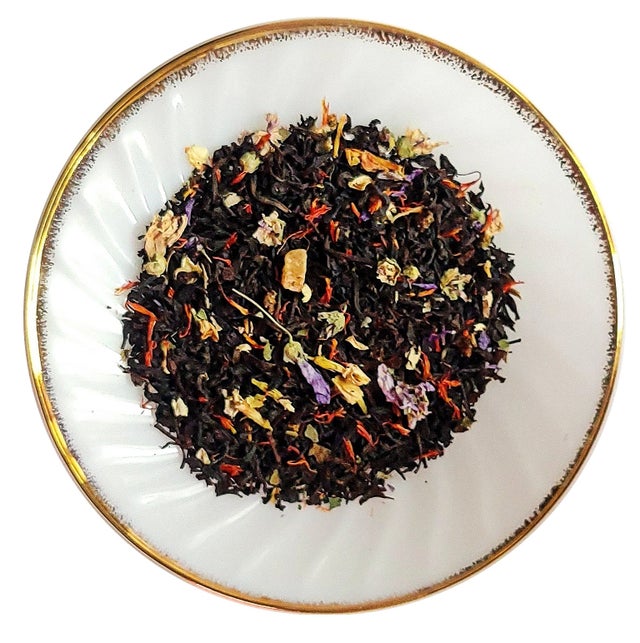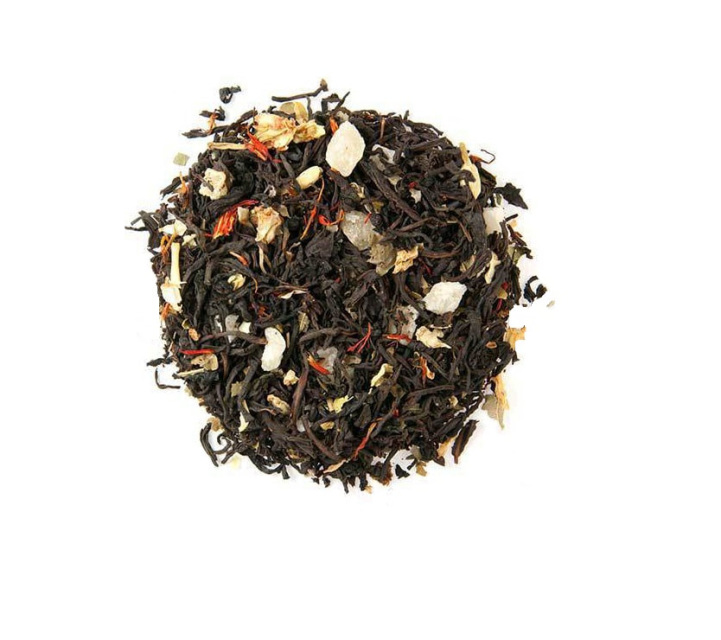- Flavored
- >
- Plum Pear
Plum Pear
SKU:
$1.25
1.25
29.25
$1.25 - $29.25
Unavailable
per item
Description
Discover sweet notes with fresh fruit highlights. Especially exquisite when garnished with a cinnamon stick.
Tell Me MoreThe first incidence of a plum and a pear being added to a pot of steeping hot tea is thought to have occurred over a thousand years ago in China. China, you see, is the only country in which plum, and pear trees both grow in the wild. Everywhere else, one or the other has had to have been imported and cultivated. The ancient Chinese made great use of their natural bounty and were great culinary experimenters, a characteristic that saw the invention of many, many, tea variations. These early gastronomes, instead of using natural fruit extracts, as we have with this wonderful tea, may have simply mashed up the flesh of both fruits and added it to a fresh pot of tea before it was strained. They believed that both of these particular fruits when added to fresh tea had the ability to soothe and calm the nerves. While this flavor combination was probably first brewed using green tea, we felt that it would also make an excellent black tea, especially when the base tea is our high grown Ceylon tea. (Ceylons are known to pick up the subtleties of fruit exceptionally well.) Brew yourself a pot today and savor the acidic subtleties of both fruits as they brew together. This is truly a wonderfully fresh tasting tea that is as good over ice as it is piping hot - either way it's delicious.
|
Brewing For Best ResultsIdeal Brewing Temperature: 209°F/98°C.
Minimum Brewing Temperature: 190°F/89°C. Bring filtered or freshly drawn cold water to 209°F/ 98°C. Place 1 slightly heaping teaspoon of loose tea per 8 oz of fluid water. Steep 3-5 minutes according to taste (the longer the steeping time, the stronger the tea). Pairs well with: Milk, Sweetener |
Origin
Tea(s) From: Sri Lanka, Kenya, India, Thailand, China, Albania, France Region(s): Nuwara Eliya, Dimbula, Uva, Nandi Highlands, Nilgiri, Petchabun, Fujian, Yunnan, Tirana, Provence 98% Ethical Tea Partnership ingredients
Luxury Ingredients: Black tea, Pineapple, Pear pieces, Safflower, Mallow, Jasmine petals, Blackberry, Lime leaves, Natural flavors (organic compound) iced tea instructions
Per Serving: Bring filtered or freshly drawn cold water to 209°F/ 98°C. With and infuser, use 1 slightly heaping teaspoon of loose tea per 6-7 oz of fluid water. Steep 5 minutes. Add filtered hot tea to 16 oz glass filled with ice. (Some luxury teas will turn cloudy when poured over ice). Per Pitcher: Makes 1 Quart. Bring filtered or freshly drawn cold water to 209°F/ 98°C. Place 6 slightly heaping teaspoon of loose tea in a heat resistant container. Pour 1 ¼ cup of prepared water over the tea leaves. Steep 5 minutes. With a fine mesh sieve, filter the hot tea liquor to the serving pitcher filled with ice. Add cold filtered water to top off. (Some luxury teas will turn cloudy when poured over ice). brewing tips
Making an amazing cup of tea requires several things. High quality tea, filtered or freshly drawn cold water, correct water temperature, time of infusion, and filters/infusers. Unfiltered water or too hot of water can ruin the best of teas. Always use filtered or freshly drawn cold water. Any flavor from water treatments or heavy minerals such as lime or calcium can taint the water. Brew at the ideal temperature. Too hot of water can scorch the leaves and produce a bitter brew. If you find that the tea is still bitter following the recommended brewing temperature, try lowering the brew temperature another 5 to 10 degrees. Use infusers that allow the tea leaves to fully expand and has full contact with the water. Ditch the tea bags. Know the steeping time for your tea. Too long of steeping can make your tea bitter and undesirable. Too short of time will make a weak tea. Don’t make tea in the microwave. Food safety
We strongly recommend using filtered or freshly drawn cold water brought to a rolling boil when brewing all types of tea. Today’s water has been known to carry viruses, parasites and bacteria. Boiling the water will kill these elements and reduce the potential incidence of water-borne illness. Cool the water to the ideal brewing temperature before brewing. |


